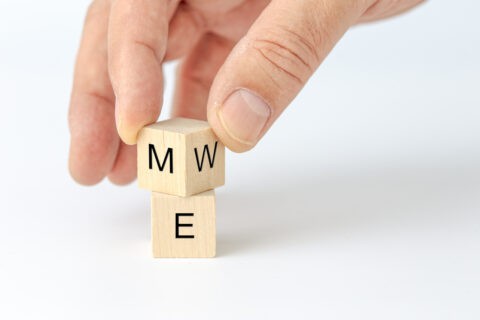
Unforgiveness doesn’t just poison an individual’s heart. It also poisons a marriage, even if the unforgiven offense isn’t related to the relationship. Harboring resentment or bitterness toward others in your life will still have a negative effect on your marriage.
If unforgiveness is poison, then forgiveness is the antidote. When we choose to forgive others—especially a husband or wife—we clear away toxic thoughts and emotions. Forgiveness cleans out the house. It blesses a relationship, and it helps us move forward.
Forgiving other people is a serious issue with God and one of the requirements of a marriage that follows God’s Law of Purity. There are five important steps to forgiveness. Practicing these steps consistently can turn forgiveness into a lasting habit that strengthens your relationship every day.
1. Release
Release the guilty person from your judgment. Do not keep replaying the offense in your mind. Do not dwell on your hurt or stay stuck in a loop of pain. Allow yourself to release the burden for your own peace. Let the situation go so it doesn’t continue to weigh you down.
2. Decide
Forgiveness is a decision. Decide to respond with empathy, compassion, or understanding, even if the person doesn’t ask for forgiveness. In situations involving harm or abuse, healthy boundaries are necessary, but your spirit can still lean toward release rather than resentment.
3. Reframe
Find a way to mentally shift your view of the person or situation. This could mean wishing them peace, hoping for their growth, or taking the time to pray for them. Reframing and prayer helps soften bitterness and brings clarity, even when there’s no apology. Whether through prayer, or simply pausing to extend compassion, this shift in mindset can be one of the most powerful steps in healing past hurts. It takes time, but approaching someone with peace in your heart, can transform your healing journey.
By the way, the refusal to bless or pray for a person is proof that you aren’t forgiving toward them.
4. Move On
Make a conscious choice not to bring up the past again and again. While it’s natural to remember, you don’t have to relive it. The past doesn’t have to define the present. Let the moment go so your relationship can move forward.
5. Repeat
Repeat. Forgiveness is not a one-time event. Keep going through these steps until you sense a genuine release of the unforgiveness in your heart. Be patient with yourself as you work through the process.
When forgiveness becomes a habit, relationships get stronger. Letting go doesn’t mean forgetting, it means choosing freedom, peace, and connection over pain and distance. Your relationship deserves that kind of love.












